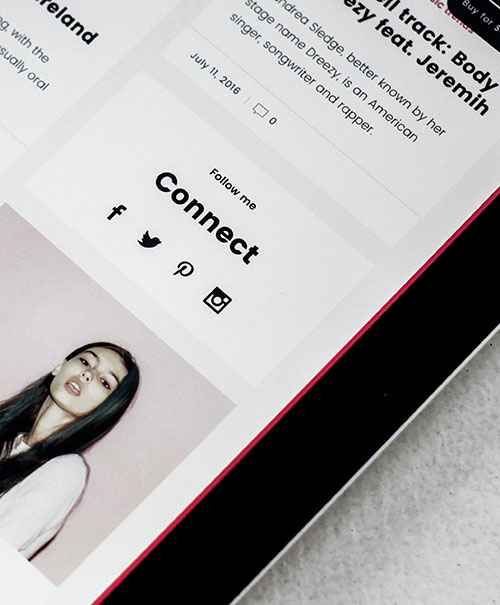Which Types of Social Media for Your Small Business?

While you probably use some type of social media in your personal life, you may be confused about how how to use social media for your small business. While social media might not be great for all types of businesses, it is a helpful tool for most. For example, a therapist with a small private practice might find that a blog is a more appropriate space to talk about personal subjects. A therapist that is also an author or speaker, however, could make good use of social platforms for announcements. When I talk with clients about building their online presence and having social media integrated into their website, many ask my opinion about which platforms are right for them. I’ll be focusing on both of these topics today – platforms and website integration and posing important questions to help you determine the right answer for your small business.
Defining your goals
Defining your marketing goals is an important task before exploring what social media can do for your small business. Here are some common reasons people use social media in their business – see what fits for you.

- build brand awareness
- connect with current clients/customers
- attract new clients/customers
- find collaboration opportunities with other professionals
- announce promotions, sales, new products, and events
- collect reviews and testimonials
- increase traffic to your website
Determine what platforms your audience already uses
As a small business owner, you should have a decent idea of the demographics of your target audience. To drill down further on this, Google Analytics can help. There are several ways to determine what platforms your target audience is using. The first is to conduct a survey and ask them directly – a newsletter service like MailChimp or a survey website like Survey Monkey is perfect for this. You can also view market research for certain demographics in articles like this one.
Social media for business – content
Next, think about the type of content you’d like to create for social media. Do you have videos, images, blog articles, quotes, research, whitepapers, promotions, coupons or podcasts? Determining what kind of content you’d like to share is paramount in choosing a platform.
Engaging users with social media on your website
User engagement can be an important strategy for small businesses and non-profits. Inserting a social media feed directly on your website shows your users that people are excited and engaged with your brand. This is particularly helpful during an event because it creates a shared experience. Having links to your social media accounts are also important but less engaging. For other fun ideas on how to integrate social media into your WordPress website, read this article.

Pew Research Center reported in early 2019 that 69% of adults in the United States use Facebook. Facebook is excellent for generating new leads and it has a highly customizable advertising platform that allows you to target a very specific audience. The platform is highly engaging and a great place to respond to customer concerns and reviews. Facebook is also good for all kinds of content like blog posts, images, promotions and videos.
X
X is the best platform for breaking news or in the moment engagement. Most X users are under 50 years old. People often share reviews about products they use on X, so it’s also a good platform for providing customer service. Not responding to negative experiences with your service or brand on X is a big deal though – make sure you stay engaged there if you open an account.
Instagram is all about showing off images related to your business so if your small business is highly visual, this is a great platform for you. Is your small business a local restaurant, a flower shop, or a fitness studio? It’s critical that any images shared are of high quality and portray your business in the best possible light. Instagram is also a great place to share a visual story of an event. Instagram offers a business profile (you must have a personal account as well) option for businesses.
YouTube
YouTube offers businesses their own channels to execute their marketing strategy. Videos are a great way to show potential clients who they will be working with. They are also great for short tutorials and product demonstrations. YouTube videos are highly searchable so they also offer opportunities for increasing traffic to your website.
What NOT to do on social media
- Don’t be annoying – people are there to engage and if you constantly hit them with advertising they will feel spammed
- Don’t be too controversial – avoid anything political or shocking
- Don’t neglect your page – post new content regularly and respond to other’s comments in a timely fashion
- Don’t forget to proofread for spelling and grammatical errors
- Don’t post all the same stuff on each of the platforms. Create unique content that works best for the platform you are on
Own a website you're proud of!
Proudly building affordable WordPress websites in Seattle for 15 years.
Connect
© 2026 Flip Flop Freelance, LLC | Seattle, WA